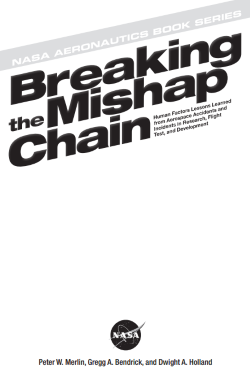
When a team of military and civilian researchers conquered the sound barrier with the rocket-powered Bell X-1 piloted by Capt. Charles E. “Chuck” Yeager in October 1947, flight performance was considered to be primarily a function of the airframe/powerplant configuration, flight controls, and pilot skill. Design focus in the 1940s and 1950s, sometimes called the golden age of flight test, concentrated on vehicle configuration; aerodynamic control problems; and performance during low-speed, transonic, and supersonic flight. Human-machine interaction was not considered a key issue, except for the narrow dimension of flying handling qualities.
Advertisement
Learn more about Nasa





